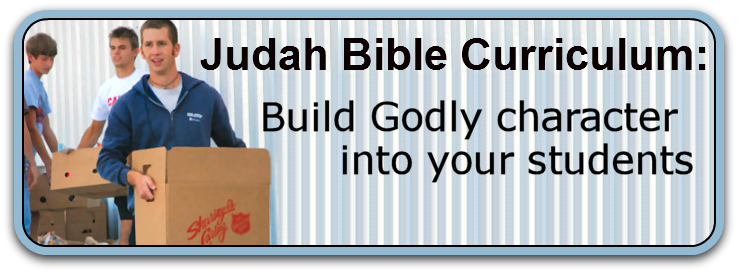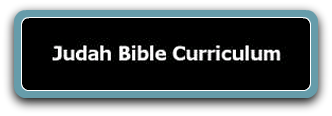Overview
The Judah Bible Curriculum focuses on the Bible as the centerpiece for Christian education. Its main focus is on what God is doing through the people, not just on the people. It's a Principle Approach curriculum that can be used in Christian schools and Christian homes in order to teach children how to study and research the Bible and be able to understand and apply its living principles in their own lives.
Having spent the past few weeks looking over and learning how this curriculum works, I have come to the conclusion that it's really more of an approach or guide to teaching the Bible as a whole. Honestly, it has been a little overwhelming, and I've had a difficult time jumping right in with this one! It is very teacher intensive, and to do it justice, I feel as if I need the whole summer to prepare in order to effectively implement this program. Not that this is a negative thing - sometimes really great things take time.
I appreciate the heart and passion behind Judah Bible Curriculum. The author, Bill Burtness, desires for us to have a practical knowledge of God's Word and His ways. He wants us to build Godly character into our students and children and be able to equip the next generation with the ability to extract understanding from the Scriptures. He sums it up this way, "As America has veered away from God and increased in dependence on the state while becoming more chaotic, the critical need is to educate a next generation of Christians who are intelligent based in Truth, self-taught not media taught, and self-governed under God not dependent on state control."
Overall Theme
The overall theme woven into the very heart of this curriculum is that of government. This idea (for those of us living in the U.S.) may conjure up images of the American Flag, the White House, and the president of the United States, but this isn't exactly what the author is talking about. It's government from God's perspective written throughout all the pages of Scripture. The author says, "The study of the Bible is the study of God's purpose and God's government, of man's response or lack of response to His rule, and the ensuing consequences both to God and to man. To study the Bible, then, is to study government and how God's government applies to men both personally in their own lives and affairs, and corporately at every level."
Also at the heart of this message is the principle of Christians being self-governed under God's headship. "God's purpose in history," as stated on the website in the Teacher Walkthrough under Creation through Babel, "is liberty to the individual, internal and external." In essence, growing Christians should choose to do the right things because they love and want to please God (internally governed), not because they are afraid of getting caught and punished (externally governed).
For a more detailed description of internal and external government, you can read this article - Character and Freedom.
I love the way this curriculum is divided into five themes that fit under the overall theme of government. From the website under Teacher Walkthrough Step 1 is an explanation that I am including here: (Highlights are mine.)
I think the above overview and overall theme best sums up the core of this curriculum. To read more about the Judah Bible philosophy of education and the Biblical philosophy of government click this link.
For a more detailed description of internal and external government, you can read this article - Character and Freedom.
I love the way this curriculum is divided into five themes that fit under the overall theme of government. From the website under Teacher Walkthrough Step 1 is an explanation that I am including here: (Highlights are mine.)
I. THEMES OF THE BIBLE
The Bible has been divided into FIVE THEMES for our study. These themes are chronological and describe what is happening governmentally in the Bible as God governs and man responds to His government:
CONTENT: THEMES OF THE BIBLE
THEME 1. CREATION God creates man to bless.
Creation, fall, flood
Genesis 1-11
Creation, fall, flood
Genesis 1-11
THEME 2. THE PLAN OF REDEMPTION BEGINS God prepares a people for Godly self-government and liberty.
Abraham, Moses, Joshua
Genesis 12-Ruth
Abraham, Moses, Joshua
Genesis 12-Ruth
THEME 3. THE KINGDOM OF ISRAEL The people want an earthly king and slavery.
Saul, David, Solomon
I Samuel – Malachi
Saul, David, Solomon
I Samuel – Malachi
THEME 4. THE KINGDOM OF GOD God’s New Covenant, an internal kingdom.
Jesus, 12 Disciples
Matthew – John
Jesus, 12 Disciples
Matthew – John
THEME 5. THE EARLY CHURCH The increase of His government and peace will have no end. (Is. 9:6)
Pentecost, Apostles, Paul
Acts – Revelation
Pentecost, Apostles, Paul
Acts – Revelation
I think the above overview and overall theme best sums up the core of this curriculum. To read more about the Judah Bible philosophy of education and the Biblical philosophy of government click this link.
What You Get
For just $44 you can download the complete Judah Bible Curriculum K-12 manual (100 pages), Elementary Notebook Ideas booklet (60 pages), and the Eight-lecture Teacher Training Seminar (Over 8 hours). For those who prefer the curriculum as a hard copy, you can purchase online for $74. (Includes shipping) Personally, for this curriculum I'd actually prefer the hard copy for better manageability.
The K-12 manual is your guide that you will use over the course of your child's entire education. Here, you will find everything you need to know in order to implement this program. However, please be aware that this curriculum does NOT have a script - it's more of a framework. For the most part, YOU will be your child's teacher.
Each of the main themes (listed above) is broken down into weekly themes, so each week there will be a different Weekly Theme Focus. A suggested reading schedule, topics to cover, and verses to memorize are included for your study K-6, repeating in grades 7-12. Note: grade level guide is mostly for teachers to use in Christian schools; homeschoolers can adapt it to fit their needs so all children can study the same theme at the same time. I, for instance, will skim through Creation pretty quickly because we have already read and studied it so much, and then go ahead and move on to the second theme.
The Notebook Ideas booklet contains the work of actual students grades K-6. Children are encouraged to make their own Bible notebooks (3-ring binders) to record and keep track of what they are learning with the use of Key Sheets. There are Key Sheets for key individuals, key documents, key institutions, and key events. The purpose is for students to learn how to extract important information from the text not just rewrite it. Blank, reproducible Key Sheets are provided in the manual or they can be accessed online once you've purchased the curriculum.
Younger children can color Bible pictures, draw their own pictures, and color maps, etc. These are not provided, yet there are examples of what younger kids can do in the Notebook Ideas booklet. The important thing is that children are truly learning to glean truths from the Bible, not just getting another assignment done. I like that there's no pressure to do assignments a certain way. It should be about creating something to be cherished for a lifetime of learning about God's Word.
The Eight-lecture Teacher Training Seminar is mostly beneficial for the adults who will be teaching the Bible following the Judah Bible format, although older children can certainly listen in as well. It would be nice to be able to watch the lectures and not just listen - I am easily distracted, I guess, when it comes to listening only. I haven't quite made it through all of them but am looking forward to summer in just a couple of weeks when I can finish listening without feeling rushed!
Diagrams for the lectures are provided in the teacher's manual, which are very helpful to see when the speaker is referring to them. Make sure to have them handy when you are listening to the lectures as they really help to explain the concept of government.
The lectures aren't exactly exciting and entertaining, but they are rich with instruction and guidance. They really do help you, the teacher, understand your role in teaching your children or students and how to do so.
How We Are Using It
Right now, I am still in the "teacher prep" phase. This curriculum, in my opinion, requires careful planning, attention to detail, and a thorough understanding of its structure and how to implement it before the actual teaching begins.
I really like what I know so far, but I want to get a tad more familiar with everything before I begin sharing this method with my children. Because we already read and discuss the Bible everyday, I don't foresee any problems implementing this program. Keeping up with a notebook other than a memory verse notebook will be new, but I will constantly remind myself that it isn't about getting another assignment done! I will give myself and my children much flexibility in the notebook department.
My plan for the summer is as follows:
- Read through the teacher's manual once again.
- Finish listening to the last few lectures.
- Go through the Teacher Walkthrough on the website one more time.
- Purchase and prepare (as suggested in the Teacher's Manual) nice 3-ring binders for each of my children.
After a relaxing summer break, we will be ready to start fresh with Judah Bible at the end of July! I am excited as I am always looking for fresh ways to teach and share God's Word.
Final Notes
I wanted to end the review by pointing out a few of the things I really like about Judah Bible. First, I already emphasised the fact that I like the overall theme of government and how it applies to our everyday lives. Second, I like the author's passion behind the message and his desire for the next generation to truly fall in love with God learning to obey Him from their hearts, to educate themselves, and to govern themselves. Last, I like the three main concepts that are stressed throughout the curriculum: (1) the hand of God in history, (2) the hand of God in the life of the individual, and (3) the importance of Godly, Christian character. The focus is about getting back to the principles, concepts, and ideas - God's perspective of His overall purpose in history - and not letting all of the details (though important) distract us from seeing the Bible as a whole.
In a homeschool setting, I highly recommend Judah Bible Curriculum to parents who want structure for Bible study but who also want to remain their children's primary Bible teachers. This curriculum is suitable for parents who want to dig deeper in their own study as well and don't want to be dependent on a script. Truly, this is a curriculum that focuses on the Bible as the cornerstone of Christian education!
See what other Crew Members are saying about Judah Bible Curriculum.
Disclaimer: As a member of the TOS Crew, I received this product, at no cost
to me, in exchange for my honest review. All opinions are mine.




No comments:
Post a Comment